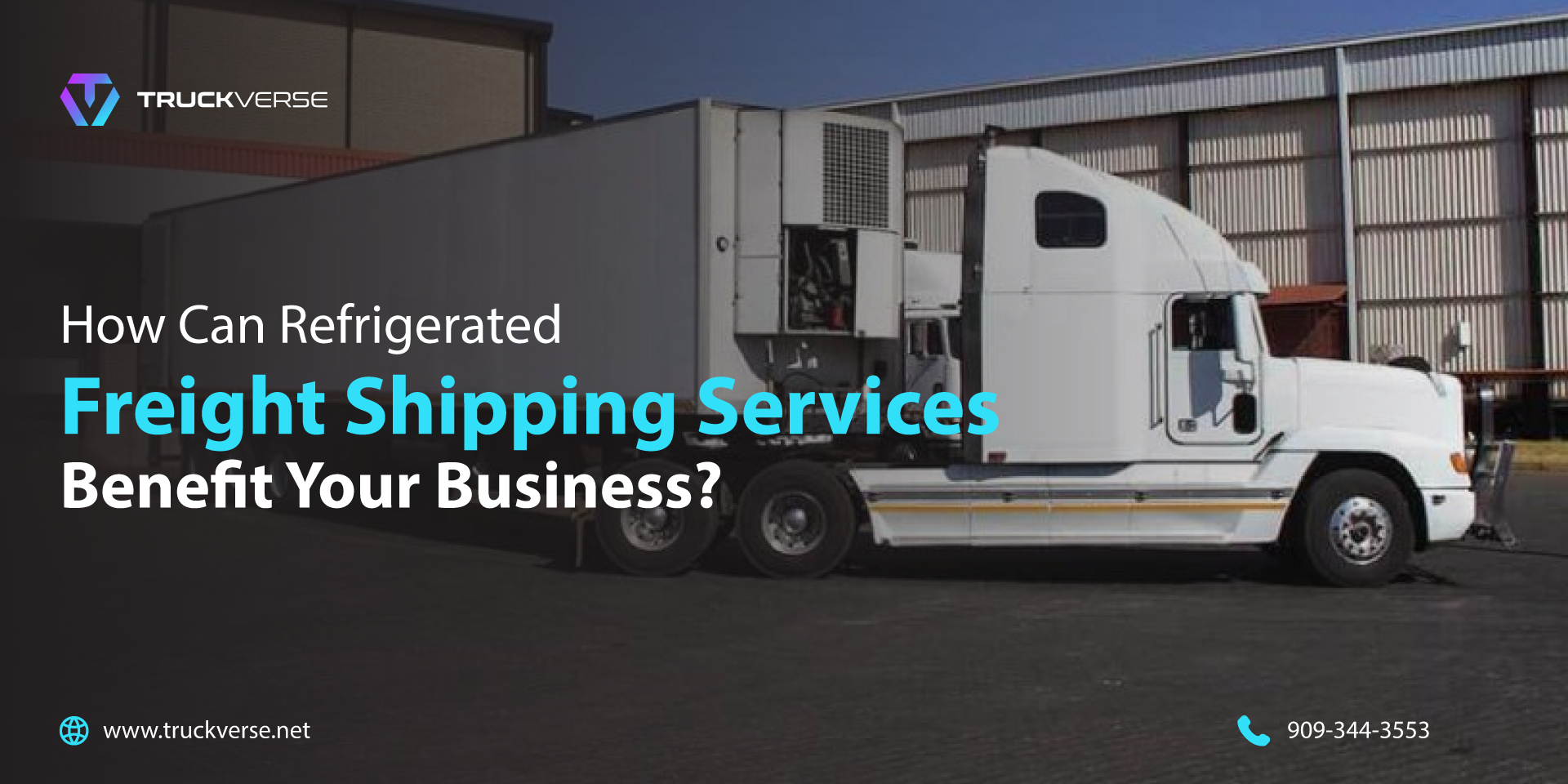If you’ve ever had to send out a shipment of fresh berries in the middle of summer or deliver frozen seafood across three states, you know the pressure. One wrong step, one delay, one temperature spike, and your product’s quality can drop faster than a carton of ice cream left in the sun.
This is exactly why refrigerated freight shipping services exist. They’re not just “cold trucks” — they’re highly controlled, carefully monitored environments on wheels. For some businesses, they’re the difference between profit and loss, between winning repeat customers and refunding orders.
What Do Refrigerated Freight Shipping Services Actually Do?
At their core, these services move temperature-sensitive goods from one place to another without letting them spoil or degrade. The trucks, often called “reefers,” have built-in refrigeration units that can be set to precise temperatures — anywhere from well below freezing to comfortably cool.
The job isn’t just about turning on the cold air and hitting the road. Drivers and logistics teams manage:
- Pre-cooling the truck so it’s ready before loading.
- Loading products in a way that keeps air circulating.
- Checking temperature logs during the trip.
- Planning routes to avoid delays.
Think of it as a moving cold storage facility with a very important deadline.
At their core, these services move temperature-sensitive goods from one place to another without letting them spoil or degrade. The trucks, often called “reefers,” have built-in refrigeration units that can be set to precise temperatures — anywhere from well below freezing to comfortably cool. It’s important to understand the key features of refrigerated freight services, as they play a major role in keeping products fresh and ensuring reliable deliveries
Why Businesses Rely on Refrigerated Trucking Services
While the food industry is the most obvious customer, it’s not the only one. Refrigerated trucking services carry:
- Fruits, vegetables, meat, dairy, and frozen meals.
- Vaccines, medicines, and lab samples for hospitals.
- Fresh flowers for weddings or events.
- Certain beauty products with sensitive ingredients.
- Specialty chemicals that can’t tolerate heat.
If your product is sensitive to temperature, these trucks are your safety net.
The Benefits You Can’t Ignore
The biggest advantage? Refrigerated shipping protects your product’s quality. But there’s more to it than that.
1. You Can Reach More Customers
A bakery in Texas can send cheesecakes to New York without worrying they’ll melt. That’s a game-changer for growing businesses.
2. Less Product Waste
Every spoiled pallet is money gone. Keeping shipments at the right temperature dramatically cuts down losses.
3. You Stay Compliant
Whether it’s FDA food safety regulations or pharmaceutical storage rules, refrigerated freight shipping services help you meet those standards.
4. Your Brand Looks Reliable
When customers know they can trust your deliveries to arrive fresh, they’re more likely to order again.
Technology Has Raised the Bar
Not long ago, businesses had to trust that the driver kept the cooling unit running. Today, technology makes it easy to see exactly what’s happening inside the truck. GPS trackers, temperature sensors, and automated alerts can tell you if the temperature changes — even by a degree.
It’s peace of mind in real time.
Costs and What Affects Them
Refrigerated transport costs more than standard freight, and for good reason. The factors that usually affect the rate include:
- Distance of the route.
- Size and weight of your load.
- Required temperature range.
- Speed of delivery (express shipments cost more).
- Seasonal demand.
Yes, it’s an investment — but for most businesses, the cost of losing a shipment is far greater.
How to Choose the Right Service
You don’t just want a truck. You want a partner who understands your products. Before you book, ask:
- Can they maintain the exact temperature you need?
- Do they offer live temperature tracking?
- What’s their on-time delivery rate?
- Do they have experience with your type of product?
A good refrigerated carrier won’t just move your goods; they’ll help protect your reputation.
The Bottom Line
If your business depends on freshness, refrigerated freight shipping services aren’t optional — they’re essential. From keeping strawberries red and sweet to making sure vaccines stay potent, these services keep your products safe from the moment they leave your facility until they reach your customer’s hands.
The right partner will save you money, reduce waste, and make sure you never have to explain a spoiled delivery again.
FAQs
Q: How cold can these refrigerated trucks actually get?
Pretty cold — way colder than your kitchen freezer. Most can go down to about -20°F for things like frozen meat, or stay just above freezing for produce. The driver sets it based on what’s inside, so your strawberries don’t turn into ice cubes.
Q: Do people really use refrigerated shipping for things other than food?
All the time. Flowers, vaccines, makeup, certain chemicals — if it can spoil, melt, or lose quality in the heat, it can go in a reefer truck.
Q: Is there any way to keep costs from getting too high?
A few tricks help. If you can, send bigger loads instead of lots of small ones, book your shipments early, and use a carrier that plans smart routes so you’re not paying for wasted miles.
Q: What if something goes wrong with the temperature mid-trip?
With good carriers, it usually doesn’t get that far. Most trucks have live temperature tracking, so if it even starts to drift, the driver gets an alert and can fix it before it ruins the load.




